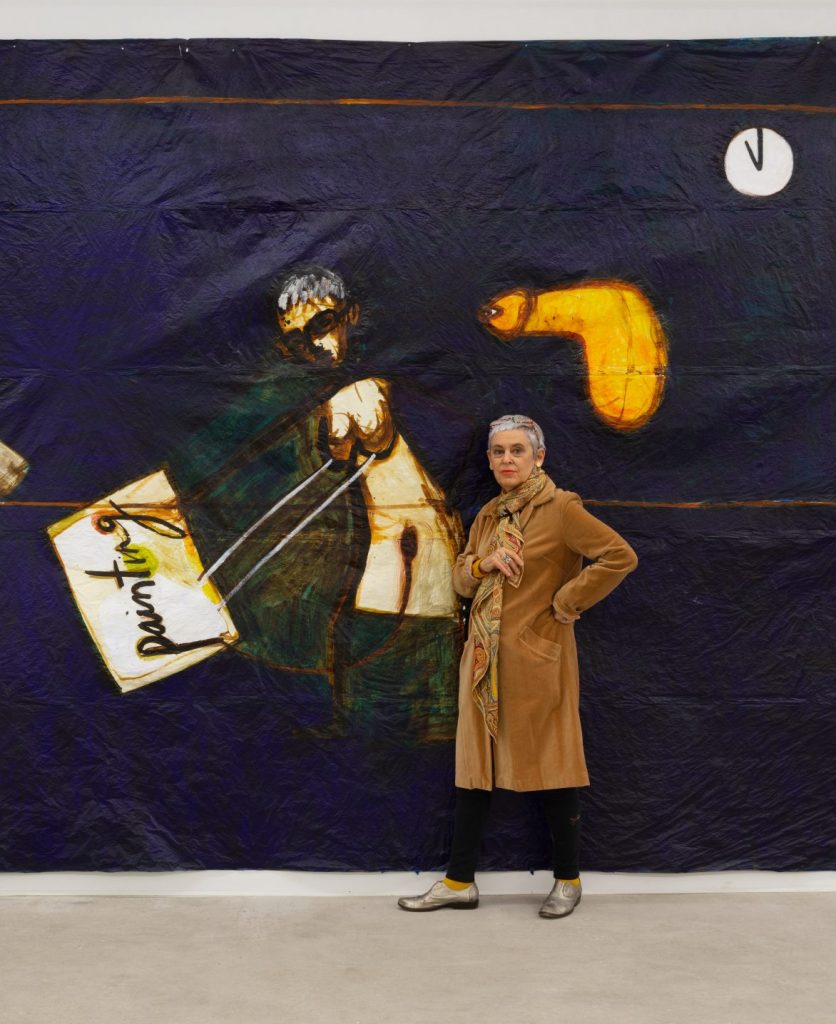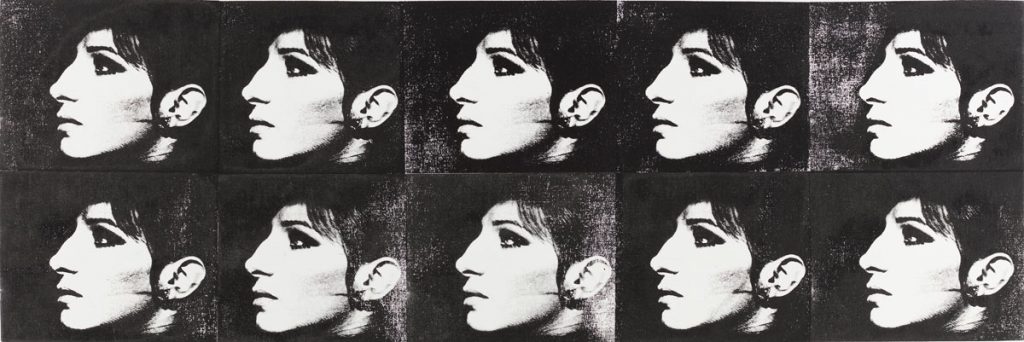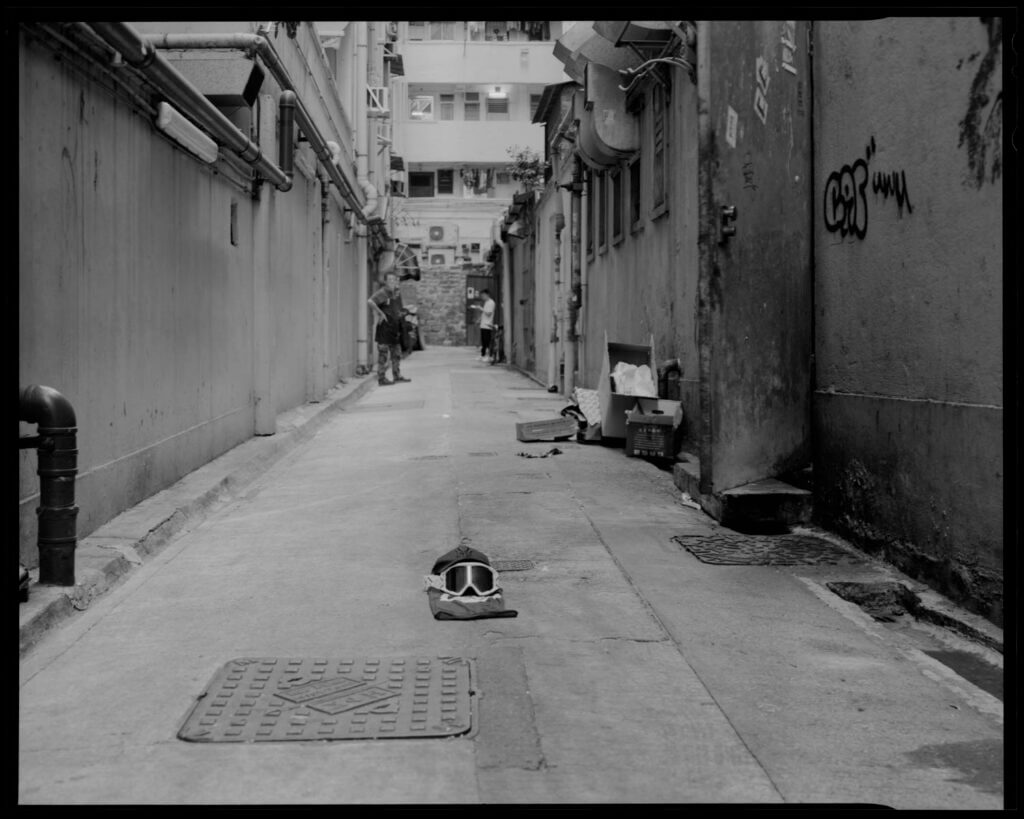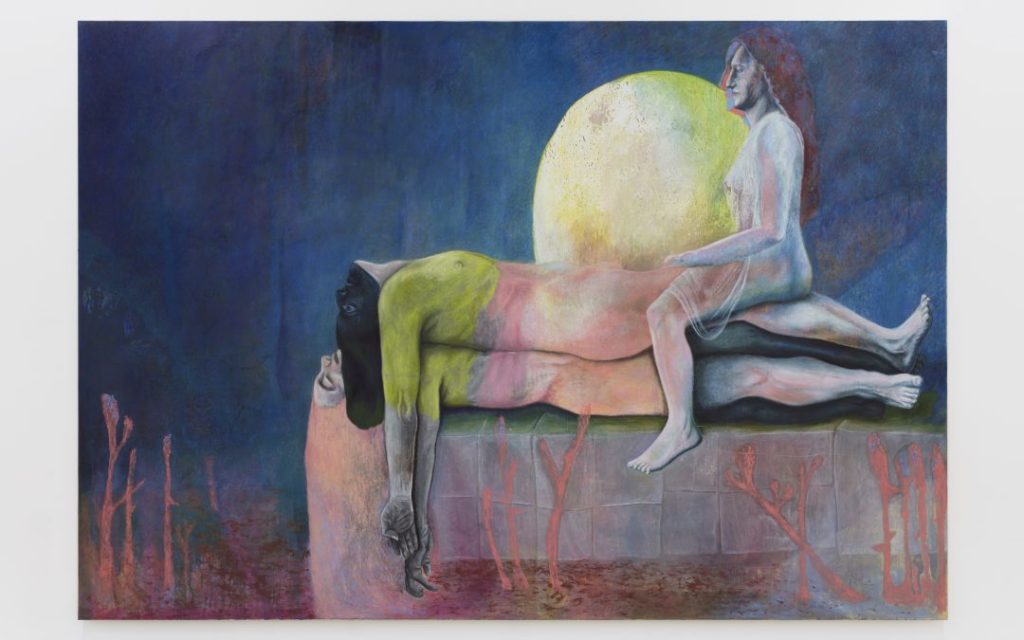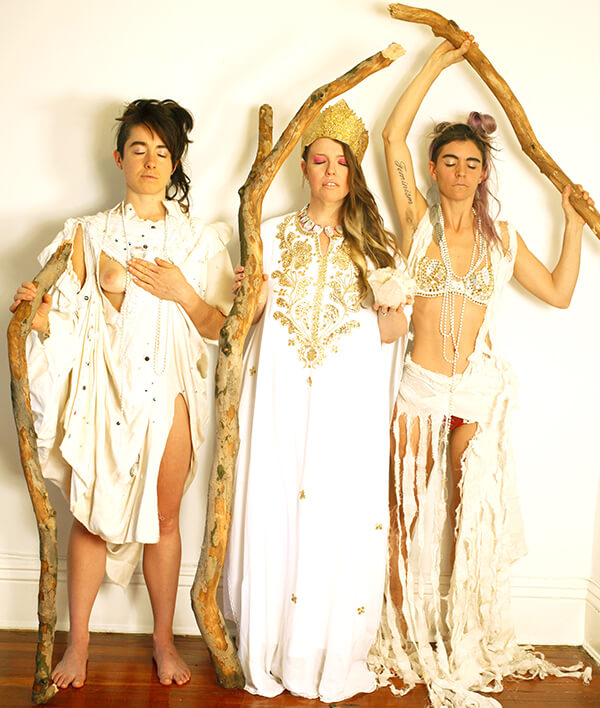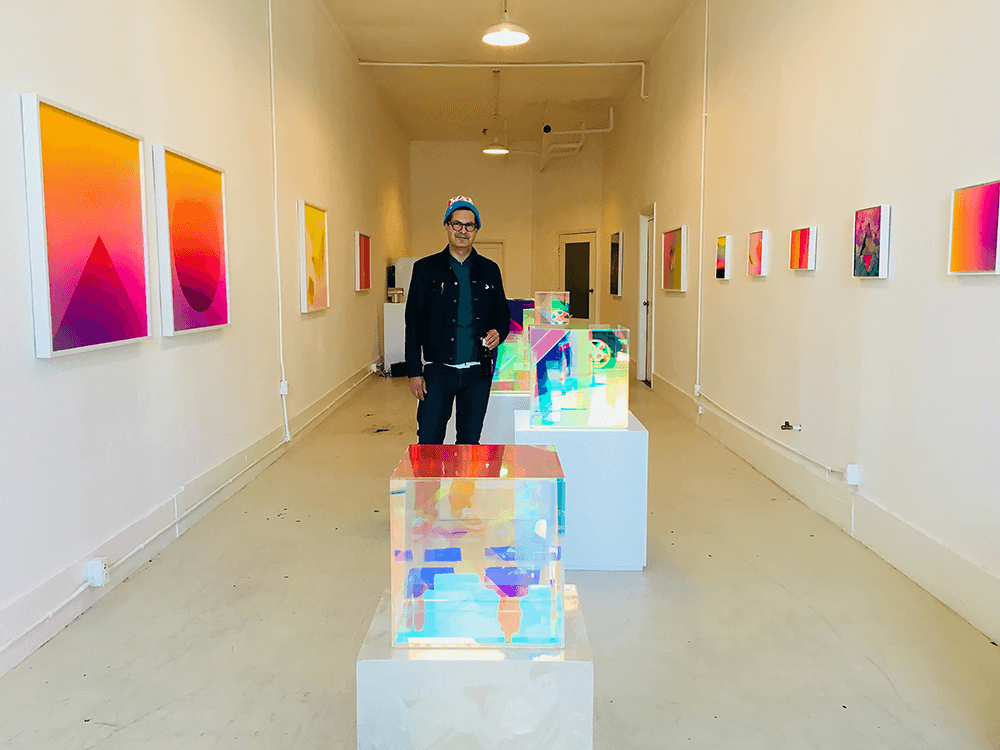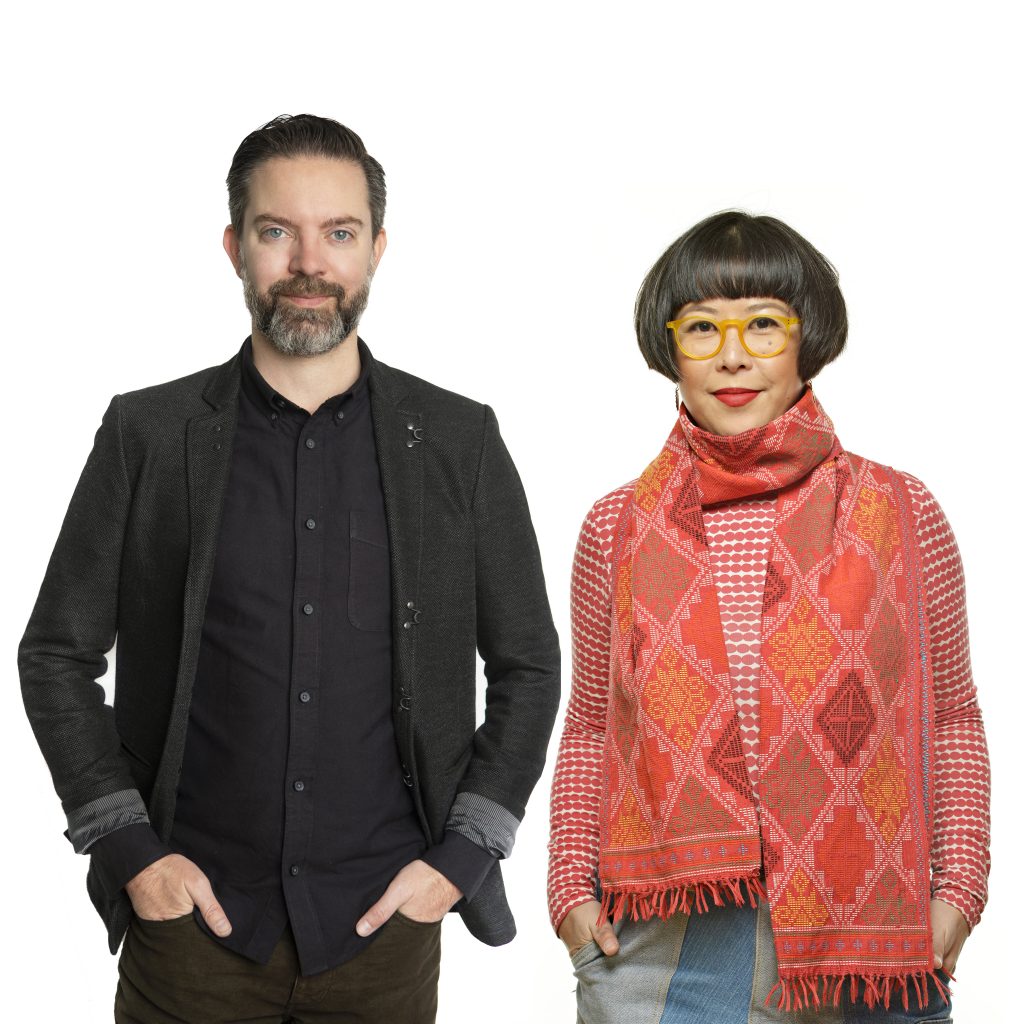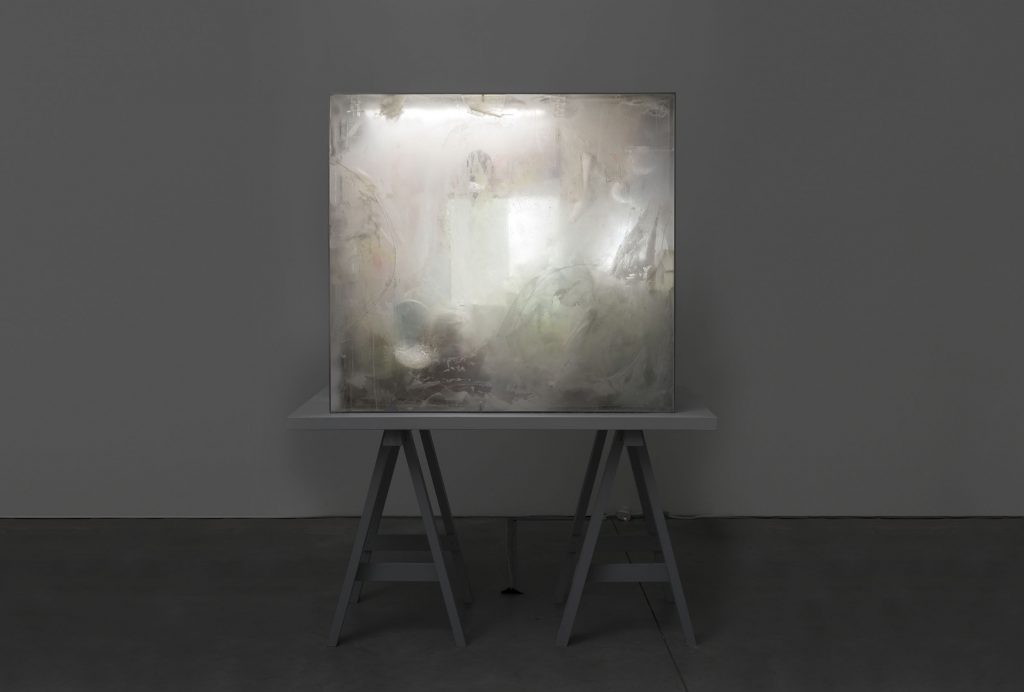James Falciano Reclaims Queer Illustration
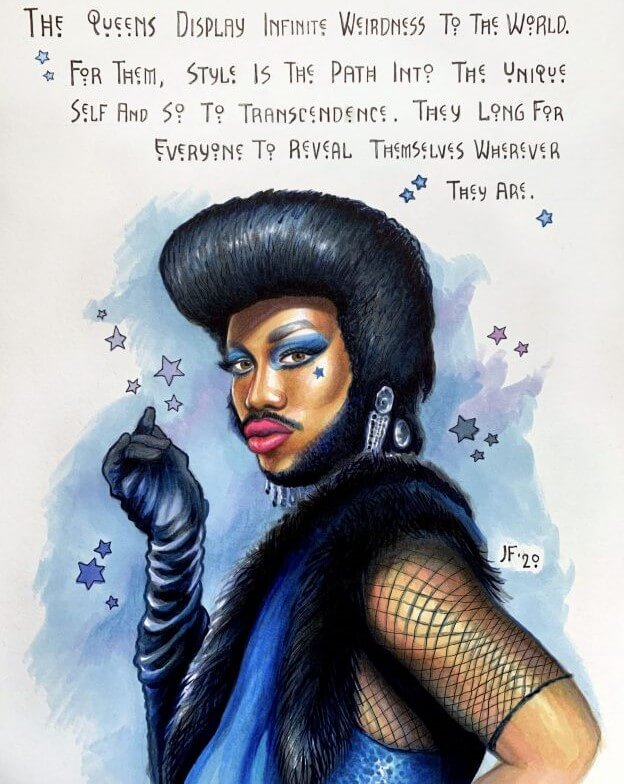
In the age of COVID-19, it is easy to forget that there is so much creativity out there. In fact, creativity is flourishing – none more so than in the LGBTQ+ community. Meet James Falciano, a queer illustrator based in Brooklyn, New York. Their unapologetically queer illustrations focus on the sensual and tender sides of the queer community in the most diverse ways. They share their thoughts on reclaiming queerness in art history, the power of collaboration and art forms that go beyond pen and paper.
FRONTRUNNER spoke to Falciano about his groundbreaking practice, playing dress-up, and the importance of collaborative effort.
Where does your creativity find its home?
My creativity finds its home through so many outlets. Visual art for sure, but also through playing around with makeup/drag, my fashion sense, changing up my hair color/style, decorating my apartment, baking/cooking, writing, collaborating with fellow creatives…really the sky’s the limit, I am always seeking out new ways to be creative.
Your Instagram account is like a fabulous queer jungle, where do draw inspiration from?
Aw, I love that! Thank you! I draw inspiration from a lot of sources. Florals and nature have always had a big pull for me, since I was very young. I was an art history minor at school, so that definitely informs my technical as well as aesthetic style a lot. I study a lot of old master portraiture as well as classical nudes. I also really love the Pre-Raphaelite movement of the 19th century as well as Art Nouveau, Art Deco, vintage botanical illustrations etc.

Alok (2020)
Colour marker and pencil on paper
8″ x 10″
Courtesy of the artist
I love queer history, too. I’m particularly inspired by the queer scene in NYC of the late 60s through the 80s. You can see how the movements that were happening then directly led us to where we are today, and I love to draw strength and inspiration from those queers that came before, enabling us to be as visible as we are now.
Most of your work is queer-focused. The way you draw creates a powerful image of the model. Where does that come from? Is it important for you to showcase the people you draw in a position of excellence and power?
Absolutely! It’s very important to me. Queer people have been ostracized through history, when you go to museums you see so many works of art only celebrating a certain portion of the population (usually cisgender and heteronormative). I want to change that in my own small way. I like my portraits of queer individuals to be powerful and celebratory, reclaiming our place in the art history narrative. I want there to be joy depicted through each subject, and I want to show the quiet strength there is in vulnerability and tenderness. It makes me feel wonderful to know that I can help empower other queer individuals through my work, to be able to lift them up and showcase their own unique beauty, expression and strength…especially when they may not be able to see these positive attributes for themselves. I want them to feel beautiful and loved. This is a big factor that drives my work, that reclamation of the power that was taken from us in our formative years at the hands of a hateful and ignorant society.

Photo credit: Zach Grear
The people you draw seem to come from all different backgrounds and diversities, which is very refreshing to see. Is that important to you or does it come naturally?
That means a lot to me, I am very happy that comes through! It is important to me to celebrate the full spectrum of diversity within the queer community, and not just a select few. It is much more exciting to me as an artist to portray individuals of varying backgrounds, as opposed to subjects that are all the same. I have also made a point to keep educating myself about issues faced by those who have not benefited from the same systemic privileges as I have, and to listen to voices that are not being heard. I’d like to use my platform to help raise up those that are being neglected as best I can. I’d also like to help change people’s limited notions of what is considered beautiful, especially in relation to body image as well as gender identity and expression. I can absolutely continue to do better and it’s something I strive for.
The queer community is beautifully diverse, but that doesn’t always come through on social media or in artwork…some voices are being paid more attention to than others. I think it’s something we all need to collectively be more aware of as a community, when is the time to take up space vs. those times when we need to be still, listen, and allow others to claim their space too.

Sarah (2020)
Colour marker and pencil on paper
8″ x 10″
Courtesy of the artist
As well as there being lots of drawings on your Instagram, there are many selfies of you in drag, “playing dress-up”, and expressing yourself in different ways. Why is that?
It’s been hugely liberating for me to express myself through clothes, hair and makeup. It’s an extension of the creative voice you’re seeing on paper for sure, but it’s also something that has allowed me to come into my own in an unapologetically authentic way. I had lived much of my formative years in shameful hiding, masking those parts of myself deemed “deficient’ by the society at large. Many of these parts were my femme attributes. In a society that puts a very limited, toxic notion of masculinity on a pedestal…having natural inclinations towards interests/mannerisms/expressions [that are] deemed effeminate led me to seriously doubt my self worth and hide my true nature for many years. Slowly, as I started to shed the outward performance of that limited kind of masculinity and embrace these hidden parts of myself…the change started manifesting in my appearance. Dyeing my hair was a huge first step, and it sort of opened the floodgates from there. It felt so amazing to finally express things that came so naturally to me, like makeup, like hair, like dressing in drag.
The voices of self-doubt in me became drowned out through the pure, unfiltered joy of authentic self-expression. I think there is so much power to be had in playing dress up. So, while both my paperwork and physical exterior are both creative outlets for me, there has really been such a deeply personal liberation through these outward displays of self expression. It’s been a wonderfully transformative and personal gender journey.
Collaboration seems to play a big role in your work. Why is that? And do you enjoy working collaboratively?
Definitely, collaboration is very important to me. When I was more insecure I would look at other artists and their achievements and be jealous…thankfully as I’ve grown in my own self worth I’ve been able to put ego in its place and instead look at other artists who inspire me and ask them about their practice. It’s wonderful to put yourself aside for a bit and learn how another creative individual sees the world through their work. And it’s also so much fun to do “art swaps”; with me depicting them in my work and vice versa. Always very cool to see yourself through another’s eyes. My own process only gets stronger through this sense of collaboration with others. I feel like it’s very important for queer creatives to advocate for one another, especially in a world that would seek to censor and erase us. If we don’t show up for one another, who will?
What are you working on? Where do you see your work going?
Hmm, I’m always working on a bunch of projects at once…I have a long list of ideas/potential subjects I’d like to draw. Sometimes it’s hard to compartmentalize enough to take it one step at a time. Currently I’m working on a bunch of interesting commissions, including my first time illustrating a queer-centric graphic novel which is fun and different.
I think a big goal of mine is to eventually get my work featured in editorials, especially queer ones. And a big bucket list dream of mine is to illustrate the cover of The New Yorker, specifically doing a queer related piece maybe for Pride season or something like that. Currently you can find my work mainly through my Instagram, where I share new pieces as I create them, as well as drag moments scattered among the visual art.

